Electric Field Lines and Equipotential Surfaces
Electric Field Lines and Equipotential Surfaces: Overview
This Topic covers sub-topics such as Equipotential Surfaces, Electric Lines of Force, Properties of Electric Lines of Force, Properties of Equipotential Surfaces and, Equipotential Surfaces due to a Point Charge
Important Questions on Electric Field Lines and Equipotential Surfaces
Assertion(A): Electric field is always normal to equipotential surfaces and along the direction of decreasing order of potential.
Reason (R): Negative gradient of electric potential is electric field.
Nature of equipotential surface for a point charge is
The current following through a pure inductor of inductance is ampere. What is .
The instantaneous values of current and voltage in an circuit are given by . Then
In an ac circuit the current and the A.C. potential is Volt. Then the power consumed is.
The equipotential surface of an electric dipole is
What is the angle between the electric field and the plane of an equipotential surface?
Which one of the following statements is not true for electric field lines due to two positive charges situated at a distance in space?
The electric field lines are drawn for two charges and situated at a distance in space, as shown below. Which one of the following statements is true for the charges and ?
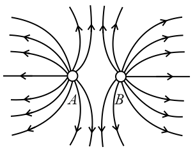
Some equipotential surfaces, which are normal to - plane are shown in the adjoining figure the direction of the electric field is:
(A) 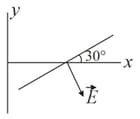
(B) 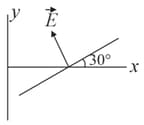
(C) 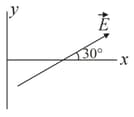
(D) 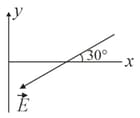
Field lines due to a negative charge are
What will be the work done in moving a charge from one point to another point at a distance of on an equipotential surface?
A charge is placed at the centre of a circle of radius . The work done in carrying a charge once round this circle is:
The correct representation of electric field lines formed by a combination of two negative charges is:
Which of the following option shows the nature of equipotential lines in plane if the electric field intensity at all points in space is given by .
If an uncharged sphere of metal is placed in the uniform electric field produced by two large oppositely charged plates, then the lines of force will look like
The work done to move a unit charge along an equipotential surface from to
Which of the following statements is not true about electric field lines?
In question , which charge has the largest magnitude?
Which of the following statements is true about electrical forces?
